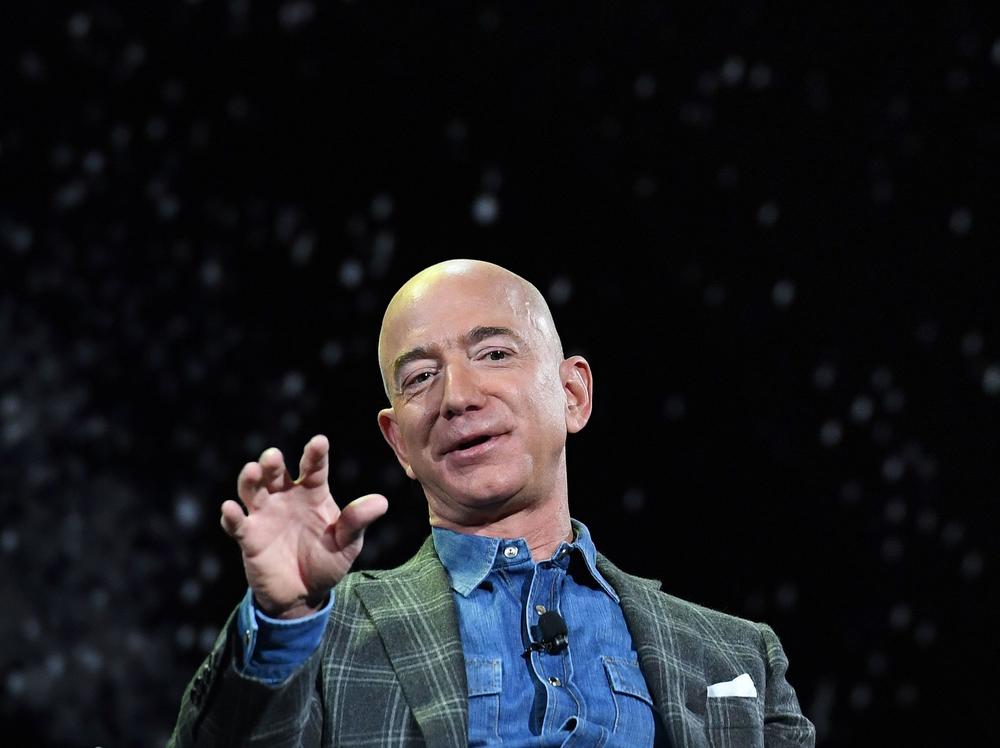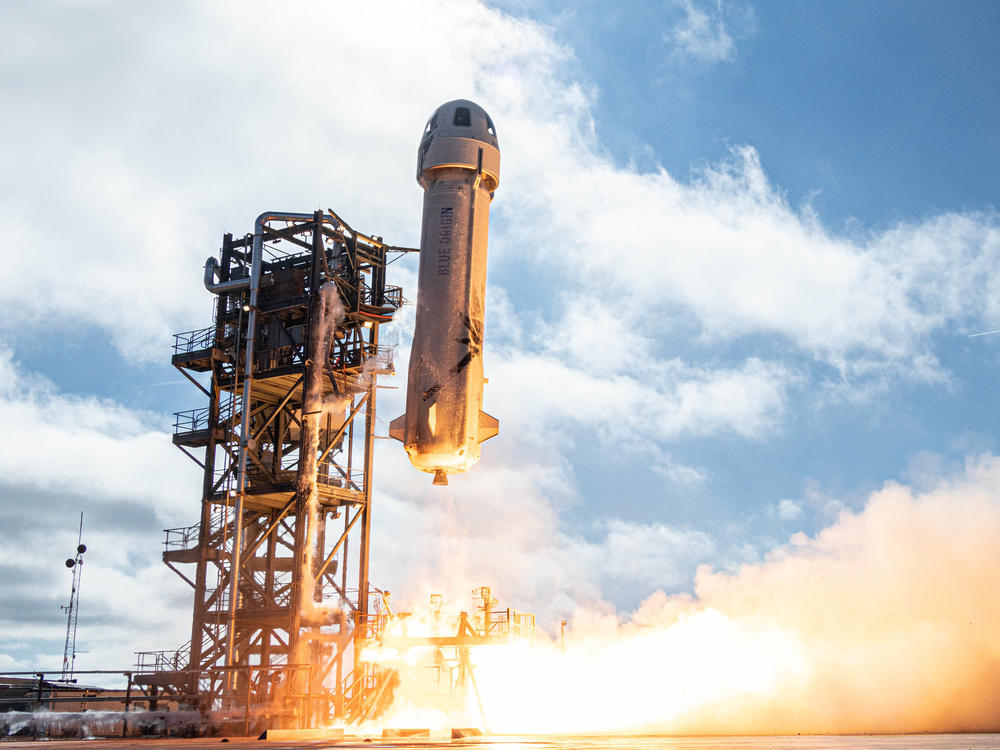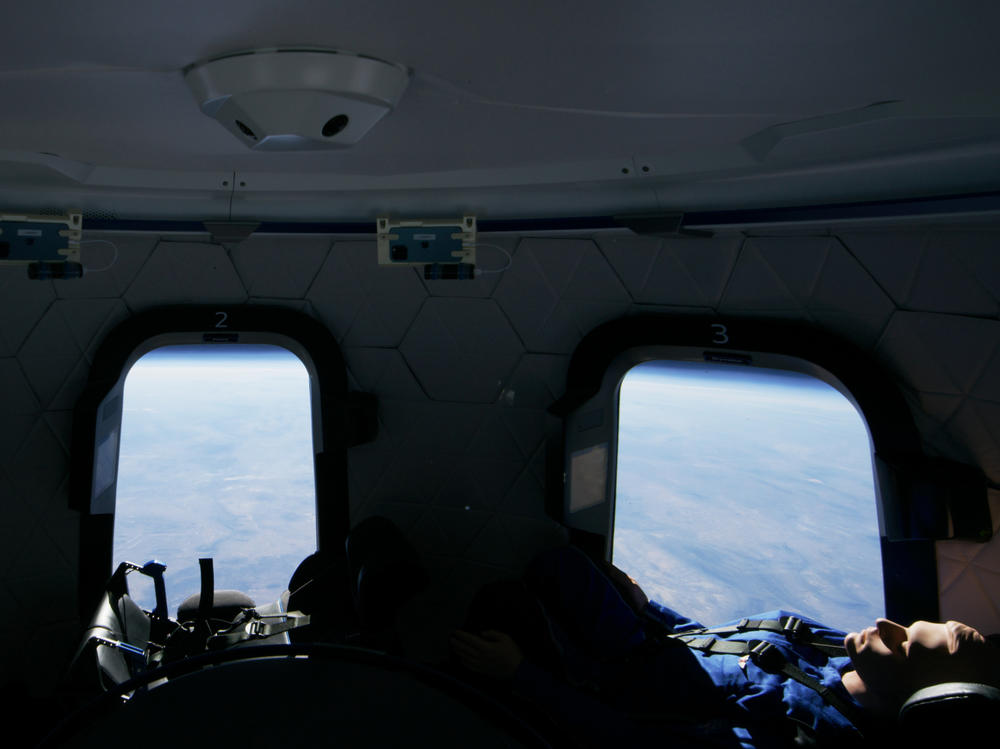Section Branding
Header Content
Jeff Bezos Is Going To Space (For A Few Minutes)
Primary Content
Jeff Bezos has already selected a hobby for his post-CEO life: space travel.
Just two weeks after he steps down as CEO of Amazon, Bezos will climb aboard a rocket made by his space exploration company Blue Origin.
"If you see the earth from space, it changes you. It changes your relationship with this planet, with humanity. It's one earth," Bezos said in a video posted to Instagram on Monday morning.
"Ever since I was five years old, I've dreamed of traveling to space."
Blue Origin's rocket is called New Shepard, and it's reusable – the idea being that reusing rockets will lower the cost of going to space and make it more accessible. The pressurized capsule has space for six passengers. There are no pilots.
This will be the first time a crew will be aboard the New Shepard, in a capsule attached to the rocket.
And it won't just be Bezos: He invited his brother Mark, too.
Want to join the Bezos brothers?
You can bid on a seat on the flight in an auction that benefits Blue Origin's foundation, which has the mission of inspiring future generations to pursue careers in STEM. The current high bid is $2.8 million.
The flight is scheduled for July 20 — the anniversary of the Apollo 11 moon landing in 1969. Bezos gives up his CEO title on July 5, when he'll pass the reins to Andy Jassy, who currently leads Amazon's cloud computing division.
Bezos ended his Instagram post with Blue Origin's Latin motto, gradatim ferociter – which the company translates as "step by step ferociously."
What does it mean, Bezos is going "to space"?
Technically, the Karman line is the altitude at which space begins – about 62 miles above sea level.
But Bezos won't be above that line for long. The flight is expected to last about 11 minutes, and only a small portion of that time is above the Karman line, according to a graphic of the flight trajectory on Blue Origin's website.
The New Shepard's journey is called suborbital flight, meaning the rocket isn't powerful enough to enter Earth's orbit.
A giant leap for billionairekind
Bezos isn't alone in spending some of his enormous wealth on space exploration.
Elon Musk's SpaceX Crew Dragon now regularly carries astronauts to and from the International Space Station. And in May, a test flight by Richard Branson's Virgin Galactic reached an altitude of 55 miles, marking its third human spaceflight.
But neither Musk nor Branson has traveled to space yet in their companies' aircrafts.
In 2014, two pilots were aboard a Virgin Galactic test flight that crashed in California's Mojave Desert, killing one of them. An investigation found that pilot error and design problems were to blame in the crash.
Four employees of Virgin Galactic are expected to join the company's next test flight, and Branson is to go on the flight after that, the BBC reported. Branson said last month that he is actively preparing his body for spaceflight.
Virgin Galactic's design looks light-years different from Blue Origin's New Shepard. Virgin's craft resembles an airplane, while the New Shepard is an actual rocket.
But Bezos says Virgin Galactic's flights don't really reach space.
"One of the issues that Virgin Galactic will have to address, eventually, is that they are not flying above the Karman Line, not yet," Bezos told SpaceNews in 2019. "I think one of the things they will have to figure out how to get above the Karman Line."
NPR science correspondent Geoff Brumfiel contributed to this report.
Copyright 2021 NPR. To see more, visit https://www.npr.org.



